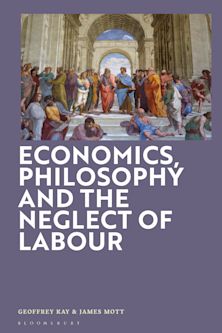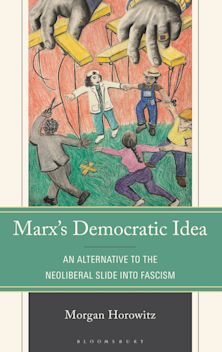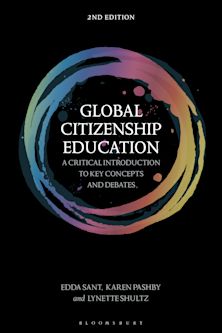- Home
- ACADEMIC
- Philosophy
- Social and Political Philosophy
- Social Cohesion Contested
You must sign in to add this item to your wishlist. Please sign in or create an account
Description
In recent decades social cohesion has emerged as a major concern of states, policymakers and researchers. Social cohesion is represented as a desirable policy goal and as the basis for everything from economic growth to individual well-being. At the same time, it is increasingly presented as a single substance, which can be measured, tracked, and compared across diverse societies. But why should we think of the complex ways in which we can live well together in terms of a single substance? Social Cohesion Contested challenges this way of thinking, suggesting that social cohesion has become a buzzword that obscures more than it illuminates.
Dan Swain and Petr Urban trace the rise of the concept through the policy agendas of transnational and international bodies, and analyze the reactions of social researchers to the demands of policymakers for a clear and operationalizable concept. They argue that the term is frequently used in a way that assumes broad understanding and agreement, while in practice it is subject to contradictory definitions and often loaded with various implicit and explicit values, which become masked behind a veneer of scientific authority and normative legitimacy. The more that social cohesion is treated as a single substance with a clear and uncontroversial meaning, the more it narrows the space for debate and contestation around both the policies adopted in its name and the understanding of the social on which it rests. In contrast, if social cohesion is to mean anything it ought to be understood explicitly as a contested concept, and actively subject to contestation. The book thus provides not only a critique of a popular concept, but an example of engaged philosophical criticism of social research and policy.
Table of Contents
Chapter 1: Staking Out the Terrain – Key Trends and Directions In Social Cohesion
Chapter 2: From Radars to Regimes – Concepts Of Social Cohesion In Focus
Chapter 3: Between Economic Growth and Social Rights – European Policy Discourse
Chapter 4: Exporting Cohesive Societies – Social Cohesion and International Development
Chapter 5: Contesting Social Cohesion
Bibliography – Part A: Policy Literature
Bibliography – Part B: Research Literature
Index
About the Authors
Product details
| Published | 05 Jan 2024 |
|---|---|
| Format | Ebook (Epub & Mobi) |
| Edition | 1st |
| Extent | 156 |
| ISBN | 9781538176641 |
| Imprint | Rowman & Littlefield |
| Series | Off the Fence: Morality, Politics and Society |
| Publisher | Bloomsbury Publishing |
About the contributors
Reviews
-
In Social Cohesion Contested, Dan Swain and Petr Urban problematize the taken-for-granted concept of social cohesion. They argue social cohesion narratives often unwittingly romanticize and reify an oppressive status quo, thus skirting democratic deliberation and critique. Social theorists of all disciplines will find this a timely and insightful contribution.
Maurice Hamington, professor of philosophy, Portland State University
-
In a wide-ranging text, Dan Swain and Petr Urban provide an impressive critical analysis of the notion of social cohesion increasingly invoked in analysis and policy in relation to rising concerns about the sustainability and stability of late modern social life. Social Cohesion Contested is an invaluable text for challenging understandings of our increasingly precarious times.
Barry Smart, professor of sociology, Centre for European and International Studies, University of Portsmouth
-
This thought-provoking book urges a critical view on social cohesion. While cohesion appears preferable to conflict, the authors convincingly demonstrate how political efforts to promote it can result in injustices and exclusions, hampering a legitimate approach to diversity in liberal-democratic societies. A highly valuable contribution to academic and public debates.
Matteo Gianni, professor of political science, University of Geneva
-
What social cohesion means depends on who is using the term. The more often it’s taught as a concept in policy intervention programs, the more vigilant we need to be regarding its use. What meanings are being pushed or erased? What tacit normality and intentions dominate? This book provides the tools to answer those questions.
Andries Baart, professor of presence and care, University Medical Center Utrecht, the Netherlands, and North-West University, South Africa
-
Is social cohesion a reality or just a trade name? The question arises at a time when equality, equity, access to fundamental rights and economic well-being for all seem to have become empty concepts. In order to respond to this challenge, and with the most scrupulous rigor, Urban and Swain examine whether horizontal practices of solidarity and mutual aid do not succeed where states fail. A must read.
Catherine Malabou, Kingston University and University of California at Irvine
-
This elegant book shows how the concept of social cohesion has become an unquestioned policy aim through perceptive analyses of its use in various regional and international institutions since the 1990s. It can be read by politicians, researchers, leading civil servants and interested academics alike. The book offers a fresh and much-needed critical perspective to current policy discourses and to the technocratic role of social research in their diffusion. It reminds us of the value of political debates about the good society, where no concept is ever settled—and of the significant role of self-reflexive social science research.
Hanne Marlene Dahl, professor and head of the Doctoral School at the Department of Social Sciences and Business, Roskilde University and leader of Crossroads of Care and Social Reproduction (CARE)

ONLINE RESOURCES
Bloomsbury Collections
This book is available on Bloomsbury Collections where your library has access.



































